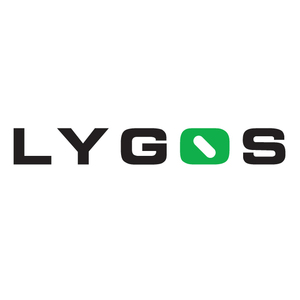Lygos wins 3 grants to advance applications for its biochemicals




March 20, 2019
BY Lygos Inc.
On March 11, Lygos Inc., a full-stack producer of specialty chemicals that deliver high-value performance without the environmental toxicity, announced three innovation research grants totaling $750,000 of non-equity funding to support advanced research and development. These funds have been awarded through separate grants from the U.S. Department of Energy, USDA and the National Science Foundation.
“These three grants are a vital tool for driving innovation and exploring new approaches to outdated or challenging manufacturing practices,” said Eric Steen, co-founder and CEO of Lygos. “Lygos is proud to partner with these agencies and their tremendous teams of scientists to apply our bio-based specialty chemicals in ways that revive innovation across large-scale industries from consumer electronics to health and nutrition to high-performance plastics and materials.”
The following three Small Business Innovation Research Grants will support the development of new approaches for the sustainable production of high-value, specialty organic acids used to manufacture a variety of high-performance polymers.
Advertisement
Advertisement
National Science Foundation Phase IIB SBIR Grant ($500K) aims to develop new technologies to fix carbon dioxide during microbial biochemical production, providing new ways to capture and valorize this abundant greenhouse gas.
DOE Phase I SBIR Grant ($150K) concentrates on solving purity and cost issues related to the incumbent processes used in glycolic acid manufacturing.
USDA Phase I SBIR Grant ($100K) focuses on biological technologies to produce glyceric acid, an enabling chemical for manufacturing new polycarbonates.
Advertisement
Advertisement
“The current petrochemical processes used to manufacture specialty chemicals like malonic, glycolic and glyceric acids, are not only expensive but they also have significant health, safety and environmental concerns,” said Jeffrey Dietrich, co-founder and chief technology officer of Lygos. “At Lygos, we are focusing our effort on providing sustainable, cost-competitive biological solutions that address some of these fundamental inefficiencies in current petrochemical manufacturing processes.”
Lygos’ proprietary platform is based on a high-throughput combination of computational modeling, unique microbe engineering and screening, and machine learning to identify and develop new bio-routes to chemicals. Lygos uses modern biotechnology to deliver the benefits of petroleum-based and other industrial chemical technology without environmental toxicity at competitive prices. Lygos also develops unique bio-based routes to chemical functionalities to expand the performance window in diverse materials systems. Lygos’ customers seek sustainable cost-efficient solutions for applications where industrial chemistry uses expensive, environmentally degrading options or has none to offer.
Related Stories
The U.S. Department of Energy Bioenergy Technologies Office (BETO) announced up to $23 million in funding to support research and development (R&D) of domestic chemicals and fuels from biomass and waste resources.
The U.S. DOE has announced its intent to issue funding to support high-impact research and development (R&D) projects in two priority areas: sustainable propane and renewable chemicals and algal system cultivation and preprocessing.
Sens. Sherrod Brown, D-Ohio, and Pete Ricketts, R-Neb., in August introduced the Renewable Chemicals Act, a bill that aims to create a tax credit to support the production of biobased chemicals.
The Chemical Catalysis for Bioenergy Consortium, a consortium of the U.S. DOE’s Bioenergy Technologies Office, has launched an effort that aims to gather community input on the development of new biomass processing facilities.
USDA on March 8 celebrated the second annual National Biobased Products Day, a celebration to raise public awareness of biobased products, their benefits and their contributions to the U.S. economy and rural communities.
Upcoming Events










